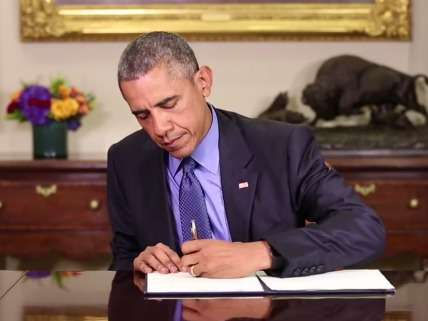Very Few Prisoners Seeking Commutations Meet DOJ's Picky Criteria for Consideration
- OurStudio

- May 17, 2016
- 2 min read

White House
Yesterday Clemency Project 2014, a consortium of volunteer lawyers who are helping the Justice Department identify promising candidates for commutation, announced that it has sent more than 1,000 petitions to the DOJ's Office of the Pardon Attorney. The project has been contacted by more than 36,000 prisoners since it was established two years ago. Ezra Dunkle-Polier, a spokesman for the National Association of Criminal Defense Lawyers, one of the groups participating in the project, says about 6,000 cases have not been considered yet, while another 5,500 or so prisoners were eliminated because they withdrew from the program or were about to be released. Of the 24,500 or so prisoners whose cases have been completely reviewed, just 4 percent met the DOJ's criteria for special consideration.
These numbers provide further evidence that the DOJ criteria are unnecessarily strict. The department is looking for "non-violent, low-level offenders" who would have received shorter sentences under current law, have served at least 10 years, "do not have a significant criminal history," have "demonstrated good conduct in prison," and have no "significant ties to large-scale criminal organizations, gangs or cartels." The need to pin down each of those factors helps explain the Clemency Project's slow progress and high rejection rate, which Justice Department officials prefer to blame on the organization's inefficiency and excessive pickiness.
If the point of clemency is to correct clear injustices, anyone serving a sentence that Congress later decided was too long for his crime should be eligible for early release. Through liberal use of his clemency power, President Obama could effectively make statutory penalty reductions retroactive, which among other things would mean freeing thousands of crack offenders sentenced before 2010. Instead he is focusing on a small subset of that group and counting on volunteers to help identify likely prospects.
Judging from the numbers so far, a prisoner's chances of commutation are good once he gets the Clemency Project's stamp of approval. Dunkle-Polier says the Office of the Pardon Attorney has made recommendations concerning 120 of the forwarded petitions, of which 86 were granted and 34 were denied. That's an approval rate of 72 percent for prisoners vetted by the Clemency Project, compared to an overall approval rate of 1.5 percent. Petitions reviewed by the project's lawyers account for 28 percent of the 306 commutations Obama has granted.




Comments